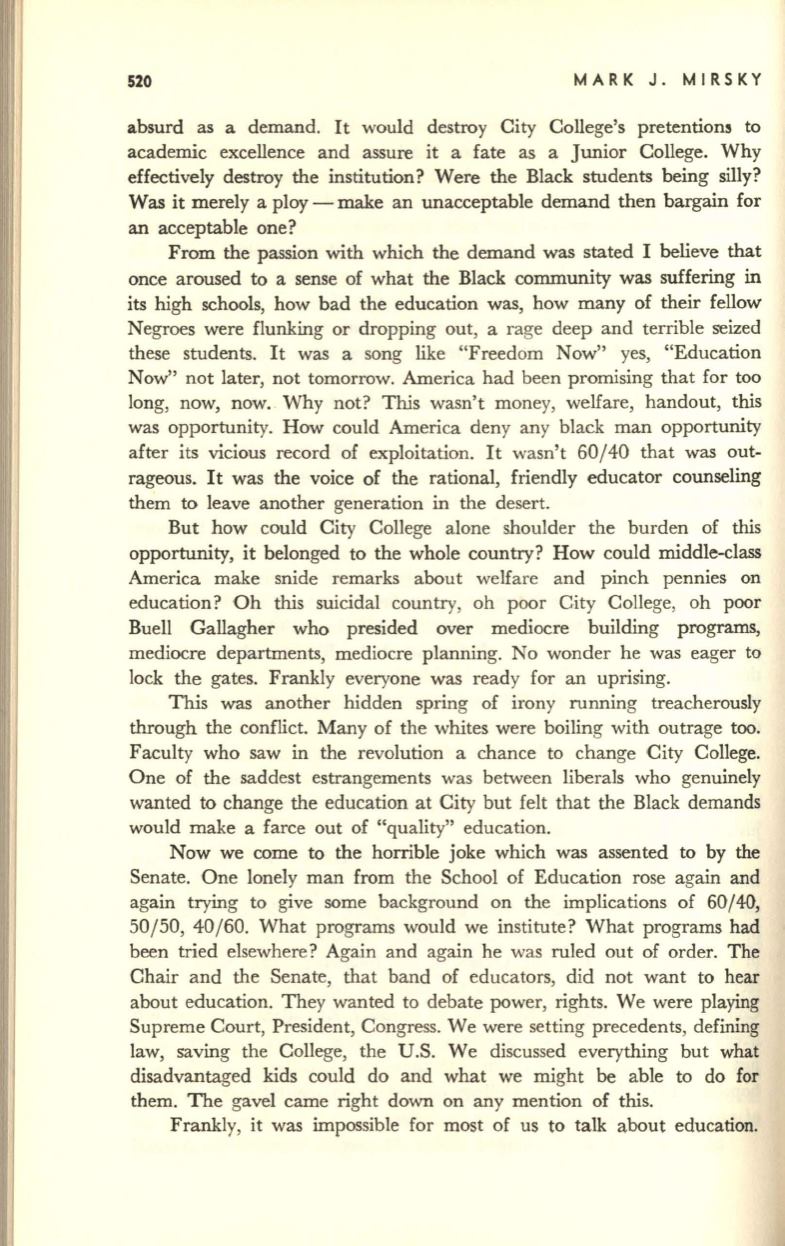
520
MARK
J.
MIRSKY
absurd as a demand. It would destroy City College's pretentions to
academic excellence and assure it a fate as a Junior College. Why
effectively destroy the institution? Were the Black students being silly?
Was it merely a ploy - make an unacceptable demand then bargain for
an acceptable one?
From the passion with which the demand was stated I believe that
once aroused to a sense of what the Black community was suffering
in
its high schools, how bad the education was, how many of their fellow
Negroes were flunking or dropping out, a rage deep and terrible seized
these students. It was a song like "Freedom Now" yes, "Education
Now" not later, not tomorrow. America had been promising that for too
long, now, now. Why not? This wasn't money, welfare, handout, this
was opportunity. How could America deny any black man opportunity
after its vicious record of exploitation. It wasn't 60/40 that was out–
rageous. It was the voice of the rational, friendly educator counseling
them to leave another generation in the desert.
But how could City College alone shoulder the burden of this
opportunity, it belonged to the whole country? How could middle-class
America make snide remarks about welfare and pinch pennies on
education? Oh this suicidal country, oh poor City College, oh poor
Buell Gallagher who presided over mediocre building programs,
mediocre departments, mediocre planning. No wonder he was eager to
lock the gates. Frankly everyone was ready for an uprising.
This was another hidden spring of irony running treacherously
through the conflict. Many of the whites were boiling with outrage too.
Faculty who saw in the revolution a chance to change City College.
One of the saddest estrangements was between liberals who genuinely
wanted to change the education at City but felt that the Black demands
would make a farce out of "quality" education.
Now we come to the horrible joke which was assented to by the
Senate. One lonely man from the School of Education rose again and
again trying to give some background on the implications of 60/40,
50/50, 40/60. What programs would we institute? What programs had
been tried elsewhere? Again and again he was ruled out of order. The
Chair and the Senate, that band of educators, did not want to hear
about education. They wanted to debate power, rights. We were playing
Supreme Court, President, Congress. We were setting precedents, defining
law, saving the College, the U.S. We discussed everything but what
disadvantaged kids could do and what we might be able to do for
them. The gavel came right down on any mention of this.
Frankly, it was impossible for most of us to talk about education.


